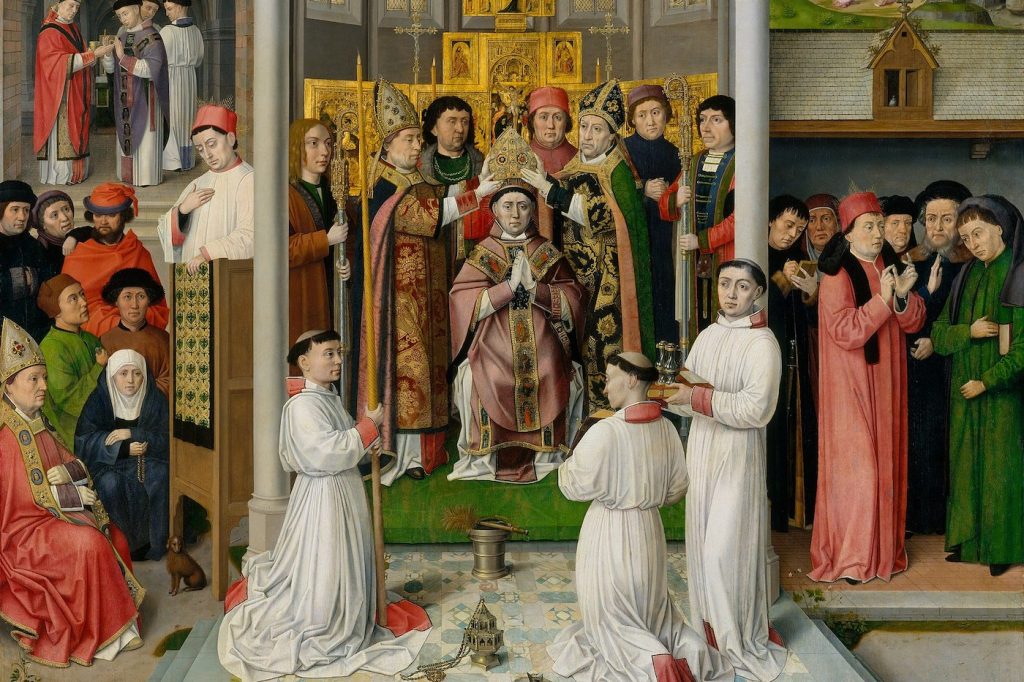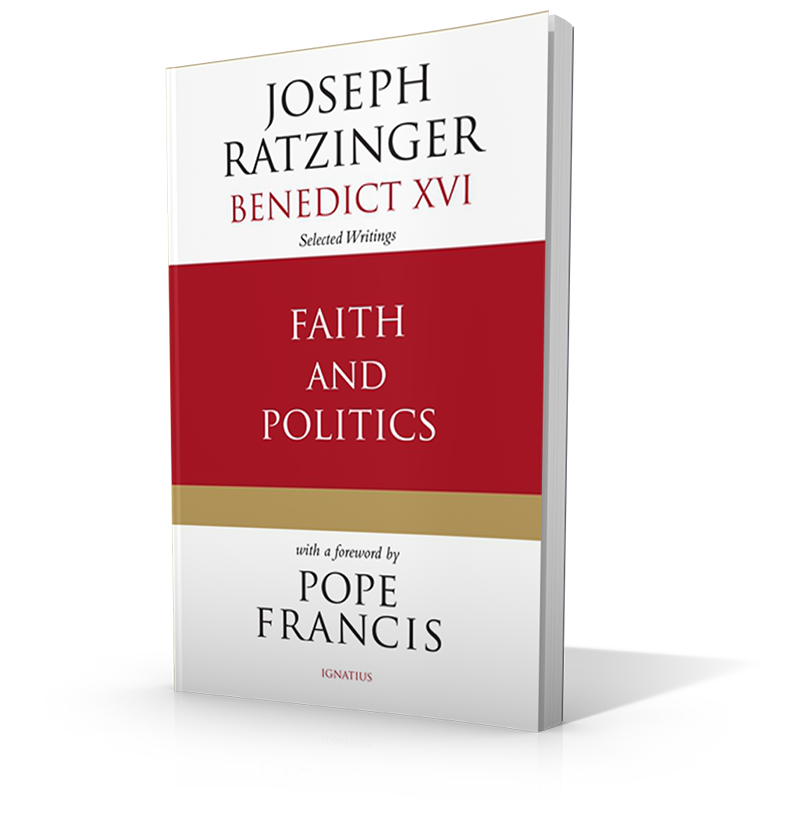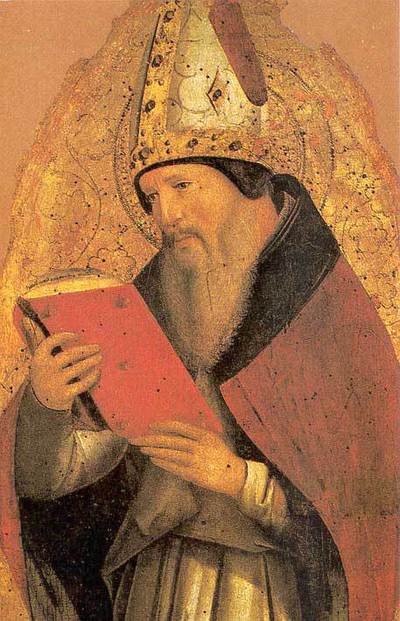
The City of God
Perhaps the best-known passage in St Augustine’s The City of God involves Alexander the Great and a pirate:
Remove justice, and what are kingdoms but gangs of criminals on a large-scale? What are criminal gangs but petty kingdoms? A gang is a group of men under the command of a leader, bound by a compact of association, in which the plunder is divided according to an agreed convention.
If this villainy wins so many recruits from the ranks of the demoralised that it acquires territory, establishes a base, captures cities and subdues peoples, it then openly arrogates to itself the title of ‘kingdom’, which is conferred on it in the eyes of the world, not by renouncing of aggression but by the attainment of impunity.
For it was a witty and truthful rejoinder which was given by the captured pirate to Alexander the Great. The king asked the fellow, ‘what is your idea, in infesting the sea?’ And the pirate answered, with uninhibited insolence, ‘the same as yours, in infesting the earth! But because I do it with a tiny craft, I’m called a pirate: because you have a mighty navy, you’re called an emperor.’
DYING DAYS OF ROMAN EMPIRE
In completing The City of God, Augustine was writing in the dying days of the Western Roman Empire. St Augustine responds to the argument that the troubles which have come upon the western Roman Empire have been caused by the abandonment of the Roman gods, and the conversion to Christianity. The Christian God cannot protect Rome against the barbarians. This is in the context of Alaric’s sack of Rome in 410 AD, and the flight of Italian Christians to North Africa. Rome, the city that conquered the world, was itself conquered. The Rome was traditionally regarded as having been founded by Romulus and Remus in 753 BC. The Roman Republic was established with the ejection of Tarquinius Superbus in 510 – 509 BC. The Roman Republic existed from 509 BC – 31 BC. The imperial period lasted from 31BC – 476 AD. 476 AD is the traditional date of the fall of the Western Roman Empire, though the sack of Rome in 410 AD was one of a series of events which foreshadowed the fall of the Empire in the West. The Roman Empire in the East survived as the Byzantine Empire until the fall of Constantinople in 1453 AD. For citizens of the Roman Empire, the sack of Rome in 410 AD was a disturbing event which inevitably gave rise to the question – why did it happen?
The City of God is the longest piece of writing we have from antiquity. In breadth The City of God is, perhaps, comparable to Homer’s Odyssey, Virgil’s Aeneid, or Thucydides’ histories.
MARCELLINUS
St Augustine was prompted to write The City of God by his friend, Flavius Marcellinus, an imperial official in Carthage, a brilliant and committed Christian. In 413, not long after Augustine commenced writing, Marcellinus was falsely accused, and convicted of treason. Marcellinus was executed, to the bitter dismay of his friend Bishop Augustine. In 414, the year after his death, Marcellinus was exonerated by the Emperor Honorius! So much for human justice! There is a statue of Marcellinus on the southern half of Bernini’s Colonnade outside St Peter’s Basilica Vatican City. Little wonder St Augustine’s scepticism of worldly power!
DELIGHTING IN EVERYTHING THAT IS HUMAN
Augustine, sceptical of worldly power, is no miserable misanthrope! He delights in everything that is good, everything that is true, everything that is beautiful, everything that is human. How Augustine would have delighted in the literary, artistic, scientific, technological, and economic achievements of the modern world!
Yet, for Augustine, literary, artistic, scientific, technological achievement, economic progress is not enough. For there to be a people, a res publica, there must be respect for the common good, for justice. Tyranny, faction, populism can never constitute a republic, a res publica, because each disregards the common good, the good of all, each is indifferent to justice.
CITY OF GOD AND CITY OF MEN
St Augustine explains what he means by the City of God as opposed to the city of men. Two loves have made the two cities. Love of self, even to the point of contempt for God, makes the earthly city. Love of God, even to the point of contempt for self, makes the heavenly city.
St Augustine’s distinction between the City of God and the city of men, involves no illusion that many baptised are living good lives, keeping to the straight and narrow. The two cities are intermixed and intermingled with each other until they are finally separated at the Last Judgment.
DIVISION OF THE CITY OF GOD
The first ten books of The City of God are a refutation of paganism, and the pagan gods. The final twelve books are a justification of Christianity.

WHAT MAKES A GOOD LEADER
St Augustine in The City of God enumerates the qualities of a good leader. A good leader:
- rules with justice;
- is not inflated with pride, but remembers he or she is merely a human being;
- fears God, loves God, worships God;
- is slow to punish but ready to pardon;
- takes vengeance on wrong because of the necessity to direct and protect the state, not to satisfy personal animosity;
- grants pardon, not to allow impunity to wrongdoing, but in the hope of amendment of the wrongdoer;
- when obliged to take severe decisions, as must often happen, compensates this with the gentleness of mercy;
- restrains his or her self-indulgent appetites, preferring to have command over his or her lower desires than over any number of subject peoples;
- does everything, not for a burning desire for empty glory, but for the love of eternal blessedness.
St Augustine describes the qualities of a good leader as not giving commands out of any desire for domination, but rather out of dutiful concern for others, not out of any pride in ruling, but rather out of compassion in providing for others. According to St Augustine, it is Christian leaders of this kind whom we call happy – happy in hope during this present life, and happy thereafter.
From Augustine’s perspective, there is far more to political leadership than, for instance, economic prosperity; or scientific or technological achievement; or victory in war; or winning the next election! When one hears politicians boasting of infrastructure development, a Triple A rating, economic achievement, hosting international sporting events, yet indifferent to human dignity, indifferent to human rights, indifferent to justice, indifferent to the preferential option for the poor, one realises just how far those politicians are from an Augustinian, indeed Christian, perspective.
Another way of saying this is that where love of God is lost, so love of the human person is lost, the creation of a just society is a chimera, a fantasy.
RARELY READ
TheCity of God, though often started, is rarely read from cover to cover. For many The City of God is simply too big a hill to climb! All the talk of Roman gods and goddesses, of Roman history, of Roman culture, is too off-putting.
St Augustine, in writing The City of God, is addressing in everyday, albeit eloquent language the concerns of ordinary persons living in the dying days of the Roman Empire in the west. St Augustine provides a model for theological writing, incarnating the truth of Christianity in everyday language, addressing everyday concerns. That The City of God is so incarnated in the world of late antiquity makes reading it a challenge in the 21st century. Yet The City of God is one of the foundational texts of western thought. A difficulty is the absence of a good quality thematic index in any edition I am familiar with. In such a massive work (it is over 1000 pages in most editions) one needs to be able to isolate and compare, for instance, all the passages on law and justice.
The twentieth century theologian Hans Urs von Balthasar has produced an abbreviated version of The City of God which isolates and assembles various passages thematically. Fr Joseph Fessio SJ, Vivian Dudro, and Joseph Pearce of Ignatius Press have a podcast in which they systematically work their way through Von Balthasar’s version of The City of God. So, it is not impossible to skin this rabbit!

FAITH & POLITICS
Joseph Ratzinger, in Faith and Politics (2018), has a piece on the political theology of St Augustine, in effect, the political theology of The City of God. Ratzinger’s piece on the political theology of The City of God was originally published in German in 1962, but has retained its salience despite the passage of time. Ratzinger’s piece is timeless. Ratzinger is at his simple lucid best, opening to the average reader the thought of a thinker which many otherwise would find difficult to comprehend.
RELIGIOUS NATIONALISM
What Augustine argues for, and what Ratzinger explains, is a theory of Church and state quite different from what might be called the Constantinopolitan theory of the east where the Orthodox churches too often have ended up subservient to the state. The theory of Church and state in the east tends to degenerate into religious nationalism.
RUSSIA
The political theology of subservience has sad consequences in Russia today, where the Russian Orthodox Church, instead of informing the conscience of Russians, is supporting tyranny, really a conspiracy by Russian “elites”, headed by Vladimir Putin, against the Russian people, a tyranny engaged in lying, engaged in corruption, engaged in despoiling public institutions for private gain, engaged in aggressive war, engaged in mass murder of civilians in the Ukraine.
LUST FOR DOMINATION
Relevant to Russia today (and any state fuelled by love of dominion) is what St Augustine has to say:
What reason or sense is there in wanting to boast of the size and expanse pf an empire when you cannot show that its people are happy? Or why boast of an empire whose people always dwell in the midst of the disasters of war and the spilling of blood – the blood of their fellow-citizens or the blood of foreign enemies, but, in either case, human blood – and always live under the dark shadow of fear and in the lust for blood? Any joy they have may be compared to the fragile brilliance of glass: there is always the terrible fear that it will suddenly be shattered.
St Augustine’s criticism of Rome is the lust of its leaders for domination, the domination of Rome’s leaders by lust for domination. Lust for domination is very evident in Putin’s Russia with disastrous consequences, not only for Russia, but for the whole world.
Subservience of the Church to the state was also Henry VIII’s political theology, still in evidence at the coronation of King Charles III. Henry VIII claimed to be Supreme Head of the Church in England. King Charles at his coronation in 2023 swore to uphold the Protestant religion. As monarch, King Charles is Supreme Head of the Church in England.
EARTHLY STATES
For St Augustine earthly states and earthly fatherlands hold second place to the civitas caelestis. No one should be under any illusion: all states on earth are “earthly states”, even when inhabited, more or less, by Christians, even when ruled by Christians. As such, earthly states only have an earthly value, and are not worthy of ultimate concern. St Augustine places large question marks next to the political structure of all the great empires, which endemically fall prey to the demonic ideals of earthly power and worldly prosperity.
St Augustine would recognise that many contemporary political issues involve technical, policy and other questions on which there can reasonably be different perspectives, and on which Christians are free to have different views. Most political issues involve matters about which there can be reasonable disagreement.

HEAVENLY CITY
Ultimate concern has only to do with the eternal homeland of all human beings, the civitas caelestis, the “heavenly city”. The civitas caelestis is an apt name, not only for the coming heavenly Jerusalem, but also, even now, for the Church, for the People of God, on their pilgrimage through the desert of earthly time. In the Church is assembled, from all times and from all peoples, the community of those who, together with God’s holy angels, will form a single eternal polis. On this earth, the Church, the People of God, live as aliens, and can never live in any other way, because their true home is elsewhere. St Augustine describes the City of God in this world:
So long as this heavenly city is a pilgrim on earth, then, it calls forth citizens from all peoples and gathers together the pilgrim society of all languages. It cares nothing about any differences in the manners, laws, and institutions by which earthly peace is achieved or maintained. But it does not rescind or abolish any of these; rather, it preserves and follows them, provided only that they do not interfere with the religion which teaches that we are to worship the one supreme and true God.
MARTYRDOM
The Church, in keeping with her essence, is a Church of martyrs. The Christian martyr, for Augustine, does not act according to the way of the world, but puts his faith in God. Martyrdom consists in suffering, and saying No to the world. Augustine sees in the martyr the sign of the Church, which lives and conquers in this world under the form of suffering. We are all called to be martyrs, for every life, lived well, involves self-giving, martyrdom, whether the bloody martyrdom of those who spectacularly give their lives, in spite of dungeon, fire and sword, or the white martyrdom of those who, day by day, give themselves in the ordinary duties of everyday life, sometimes in very difficult circumstances. The Christian martyr says No to this world. Von Balthasar, putting it another way, says every Christian is called to rule over the world, but in such a way that he only makes use of the world without surrendering himself to it. St Augustine understands the reality and necessity of the state, but also the imperfection of all states in this world, even Christian states.

DIVERSITY OF LANGUAGE
St Augustine sees in the vast number of human languages a sign of disunity. By contrast the unity of language is an exclusively eschatological gift, to be fulfilled only at the eschaton. For St Augustine, the miracle of tongues at Pentecost contrasts with the confusion of languages of Babel. St Augustine sees in Pentecost a symbol of what is happening in the Church on an ongoing basis–the one Church encompassing all lands and languages, a community of love, embracing those who are linguistically separated from each other. In the Church, the body of Christ, where all languages are spoken, the miracle of Pentecost is an enduring phenomenon. According to Ratzinger:
His doctrine of two states, or cities, aims neither at a state dominated by the Church nor a Church dominated by the state.Its goal, rather, was – in the midst of the structures of this world, which remained and indeed had to remain what they were – to offer the new power of faith in the unity of men within the body of Christ, as an element of transformation, whose ultimate form would be shaped by God himself, when history had finally completed its course.
EUSEBIUS
Ratzinger contrasts St Augustine’s political theology with that of the first Church historian Eusebius. According to Ratzinger, Eusebius’ political theology is significant in that it equates Christian universalism with Rome’s universal empire. In so doing, Eusebius’ political theology drags down that universalism to a political level, and thus robs it of its breadth and depth. It is St Augustine’s political theology which prevails, at least, within the western Church.
PLURALISM, DEMOCRACY & HUMAN RIGHTS
Augustine’s political theology is consistent with pluralism, with democracy, with respect for human rights. Wherever the Church is persecuted, wherever the Church’s right to exist is denied, pluralism is dead, democracy is dead, human rights are dead. St Augustine’s political theology is the enemy of totalitarianism, both in its “hard” forms, which prevail in China, and Russia, and North Korea; and in its “soft” forms, increasingly prevalent in Europe, the United States, and Australia; as well as the religious monism which prevails in much of the Middle East. The ACT Government’s expropriation of Calvary Hospital Canberra is a challenge to pluralism in the health care system, a challenge to the Church’s right to exist in a particular area of Australian life, a loss to the people of, not only Canberra, but southern New South Wales, a loss to health care as a manifestation of respect for human dignity. It is a manifestation of the “soft” totalitarianism which challenges the Church in Europe, the United States and Australia.
SIGN OF THE COMING WORLD
In conclusion, Ratzinger notes that Augustine does not attempt to work out what a world that has embraced Christianity would look like. St Augustine’s City of God is a sacramental-eschatological entity, which lives in this world as a sign of the coming world. The state remains for St Augustine, for all its apparent or real Christianisation, an earthly state, and the Church remains an earthly community that accepts the earthly state but is not at home in it.
For St Augustine it is justifiable for Christians, who are members of the eternal homeland, to serve in Babylon as officials, even as emperors; to serve as members of parliament, as ministers, even as premier or prime minister-but not to adopt political ideologies inconsistent with Christianity, not to cooperate in the passage of legislation, nor the conduct of policies, inconsistent with respect for the human person, inconsistent with respect for the community, inconsistent with exceptionless moral norms.
REVOLUTIONARY
St Augustine sees the world as provisional, and so does not attempt to give it a Christian constitution. Rather, says Ratzinger, St Augustine lets the earthly city remain as it is, and allows it to struggle within its own relative structure. To that extent, according to Ratzinger, Christianity is revolutionary, since it cannot be identified with any state, but is, rather, a force that relativises everything that is included in the world by pointing to the one absolute God, and to the one Mediator between God and man, Jesus Christ.
WORTH READING
St Augustine whose feast we celebrate on 27 August is worth reading, even today. Augustine’s three best known and most accessible works are The Confessions, The City of God and On Christian Doctrine. Adopting Von Balthasar, The Confessions describes the Christian path from self-alienation from God to self-discovery in God. The Confessions describes the lifestyle of many young men (and young women) today, what is lacking in such a lifestyle, and the need for repentance and conversion. The Confessions is a thoroughly contemporary work. What The Confessions speaks to the individual person, The City of God speaks to the community. On Christian Doctrine deals with both the understanding of scripture, and communication of the scriptural message.
These three works are each worth reading–but also Augustine’s Expositions on the Psalms, and On the Trinity, and De Genesi ad litteram, as well as his more than four hundred sermons.
St Augustine, second only to St Thomas Aquinas, is the intellectual genius, who, from the perspective of both faith and reason, explains Catholic Christianity in perennial fashion, providing explanations that resonate even today.
Michael McAuley
16 August 2023
Chronology
| Date | Event |
|---|---|
| 354 | Born to Patricius and Monica in Thagaste (Numidia), near Carthage, into a family with one older brother, Navigius, and two (unnamed) sisters. |
| 365-369 | First studies away from home in Madaura (modern day M’Daourich, Algeria) (Confessions 1) |
| 369-370 | Year back home to save money for further education (Confessions 2) |
| 370 or 371 | Patricius dies |
| 371-373 | Studies in Carthage/ joins Manichees |
| 374-376 | Operates own school in Thagaste |
| 376-383 | Returns to Carthage (Confessions 4) |
| 382 | Meets Faustus, the Manichean bishop, and is greatly disillusioned (Confessions 5) |
| 383 | Rome to begin new teaching career (Confessions 5) |
| 384 | Milan to serve as imperial rhetor/finally abandons Manichees (Confessions 5) |
| 385 | Monica arrives in Milan (Confessions 6) |
| 396 | Becomes conversant with Neo-Platonism (Confessions 7); beginning of conversion (Confessions 8-9) |
| 372 | Birth of Adeodatus. son of Augustine and his mistress (Confessions 4) |
| 386 | Discovers Neoplatonic philosophy (Confessions 7), begins to understand Christian scriptures rightly, experiences God’s voice in the garden (Confessions 8), resigns from office (Confessions 9) to prepare for baptism with like-minded catechumens (Confessions 9) |
| 387 | Baptised by Bishop Ambrose at Easter Vigil (Confessions 9). Later Monicadies (Confessions 9) |
| 388 | Returns to Thagaste with Adeodatus |
| 389/390 | Adeodatus dies |
| 391 | Ordained priest for Diocese of Hippo Regius |
| 392 | Begins to preach on Psalms resulting in Expositions of Psalms (completed 422) |
| 395 | Consecrated bishop alongside Valerius |
| 397-401 | Composition of Confessions |
| 399 | Begins On the Trinity (completed between 422 and 426) |
| 403-412 | Donatist schism became focus of many writings |
| 410 | Fall of Rome to Alaric and his army and subsequent flood of Italian Christians into North Africa |
| 411 | Council of Carthage at which Donatists defeated |
| 412 | Imperial decree condemning Donatism |
| 413-426 | The City of God |
| 415 | Synod in Diospolis, Palestine, declared Pelagius to be orthodox and worthy of emulation |
| 417 | Pelagius condemned at synod in Rome |
| 418 | Council of Carthage condemned Pelagianism |
| 426 | Augustine named priest Eraclius his episcopal successor |
| 428 | Retractions |
| 429 | Geneseric and Vandal army (mostly Arian Christians) invade North Africa from Spain |
| 28 August 430 | Augustine dies with a psalm on his lips while Geneseric and his army are on outskirts of Hippo |
